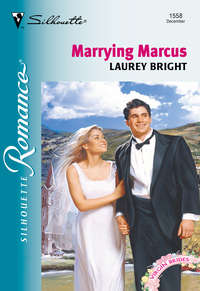
Полная версия
Dangerous Waters
“You volunteering?” Rogan asked. “I’ll have a double burger with egg and bacon, and plenty of fries. And a couple of doughnuts.”
With good grace Granger accepted the request and turned to Camille, who asked for a cheeseburger. “You’d better start the generator,” he advised Rogan, “so we can have some light.” Then, throwing his brother a quizzical glance, he ascended to the deck.
Camille realized she and Rogan were alone. The cabin seemed small and increasingly dark, and he was gazing at her rather disconcertingly.
She put a hand to her hair, smoothing several strands that had escaped from their elastic band to fall stickily across her eyes. Pulling the hair tie off, she gathered up the ponytail again and secured it.
Rogan’s eyes glazed. He cleared his throat and said, “I’ll get that generator fired up.”
He disappeared, and a few minutes later she heard and felt the throb of an engine. A light flickered on, and soon afterward Rogan came back.
Camille was carefully wiping down an old copy of Dumas’s Les Trois Mousquetaires, handsomely bound in tooled leather. She glanced up. “Your father read The Three Musketeers in French?”
“He was fluent in French,” Rogan said. “And a few other languages, including Pidgin.” He nodded at the book in her hands. “I struggled through that when I was a kid.”
“You did?”
“I’d already read it in English—but it was a challenge.”
Camille could picture him welcoming physical challenges; it hadn’t occurred to her he might enjoy intellectual ones.
She placed the book with others on a shelf. A lot of them seemed to be about disasters at sea. “You must have seen more of your father than I did of mine.”
“He dropped by when he was in port—a couple of times a year—and took us sailing along the coast when we were old enough. My mother wouldn’t let him go out of sight of the land when we were on board.” Rogan laughed. “I stowed away once. I was fourteen, and when the old man found me he went ballistic. Turned right round and brought me back. He said if I ever did that to my mother again he’d flay the hide right off my backside.”
Camille looked at him curiously. “Didn’t she mind that he spent so much time away from her?”
“I guess she did. She went with him one time, before she had Granger and me, but she got so seasick they had to airlift her off before Dad could get her back to shore, because she was dangerously dehydrated. After that she couldn’t face a boat again. But Dad lived for the sea. On land he was a fish out of water. I don’t think she ever tried to change him.”
“Is she…?”
“She died,” Rogan said abruptly. “When I was nineteen.”
“I’m sorry.”
He looked down at the books still piled on the floor, waiting to be cleaned and replaced.
Camille picked up a copy of Treasure Island. “I suppose you devoured this?”
“You bet. And this.” He lifted another book and wiped the cover with his hand. “Coasts of Treachery by Eugene Grayland. Great yarns, full of mayhem and murder.” Meeting her level look, he added hastily, “I mean, very well written. Educational,” he told her. “You should read it.”
“I have.” She read every New Zealand history book she could get her hands on—those aimed at a general audience as well as weighty, heavily referenced tomes and professional journals. “I’m a history lecturer.”
“Is that right? Where?”
His eyes were brilliant with interest and, Camille saw with satisfaction, respect. “At Rusden.” It was a small campus in the lower half of the North Island, a satellite of one of the larger universities.
She couldn’t help noticing again what an unusual blue his eyes were, like the inner curve of an incoming breaker at certain blue-water beaches. And his mouth was quite beautiful in a masculine way, the curves well-defined, his lips firm but not thin. Catching a glimpse of white, straight teeth, she felt her blood thicken. Her own mouth softened and parted infinitesimally.
Disturbed by a quick heat that made her legs weaken, Camille turned back to the task in hand. She thought Rogan moved closer, her skin signaling a simmering awareness.
To break the silence she said randomly, “All these books about shipwrecks…not exactly comfort reading for a sailor.”
Rogan gave a quiet huffle of laughter. “Dad had a dream that he’d find a sunken treasure one day.”
“I guess my father shared it.”
They’d been cut from the same cloth. Both had neglected their families to drift about the Pacific, picking up cargoes and passengers, diving for pearls or beche de mer occasionally, working onshore only when necessary. And in between, hunting for an elusive, legendary prize.
Granger returned with their meal, and they went up to the cool air of the deck to eat. Rogan shrugged back into his shirt, to Camille’s relief. She’d found his bare torso shamingly distracting.
“Camille teaches history,” Rogan told his brother. “At Rusden.”
“Really?” Granger looked at her thoughtfully.
“Mmm,” she confirmed, swallowing a mouthful of cheeseburger.
Rogan asked curiously, “You enjoy it?”
“Very much.” Teaching was a nice, steady occupation. If she needed excitement she could find it between the covers of a book about former times. And her salary was enough to keep her in reasonable comfort and help pay the mortgage on the house she shared with her mother. “What do you do?” she asked Granger.
“I’m a solicitor. And barrister, though I don’t do a lot of court work.”
“He likes playing with rorts and torts,” Rogan said with a tolerant but puzzled air.
Granger slanted him a grin, and for a moment the likeness between them was extraordinary. “I bet you don’t even know what they are,” he said.
“Dead right!” Rogan agreed cheerfully, lifting one of the cans of beer that Granger had brought back from his foraging expedition. He drank thirstily, and Camille stared in fascination at the tilt of his chin, the tautness of his throat.
When she pulled her gaze away Granger was looking at her, his eyes assessing, attentive. “My little brother is a deep-sea diver,” he said. “Fighting off sharks and giant squid for a living.”
Rogan spluttered, and wiped his mouth with the back of his hand. “That’s a load of sh…sugar,” he said. “I’ve never had to fight off a squid, even a baby one. They’re not aggressive anyway. You can stroke them.”
Camille asked, “Does that mean you’ve fought sharks?” Her skin crawled.
“I’ve had some close encounters, but they’re pretty harmless underwater as long as you don’t do anything stupid.”
Granger mocked, “And of course risking your life half a mile under the sea on a regular basis isn’t stupid.”
“No more stupid than sitting behind a desk all day,” Rogan countered. “You’re just as likely to die from an ulcer or heart attack there as I am putting in piles for a new oil rig or salvaging a wreck.”
Sending a lazy grin in his brother’s direction, Granger lifted his beer in acknowledgment. Camille deliberately watched him, waiting for a repeat of the small thrill, but it didn’t come. They looked so much alike; in fact Granger was probably the better-looking one—less hard-edged, more sophisticated, well-groomed. And yet he aroused in her nothing more than mildly pleasant appreciation.
There was no doubt about Rogan’s raw attraction. She was chagrined at being so susceptible to it.
To distract herself, she spoke to Granger about the first thing that came into her mind. “Do you think your father…and mine, might have discovered some kind of treasure?”
Granger looked amused. “Do you believe in fairy tales?”
Camille shook her head. She never had, even as a child. Her mother had taught her there was no such thing as Happy Ever After.
“To those two,” Granger said, “finding sunken treasure was the gold at the end of the rainbow, the holy grail of the sea. And they had about as much chance of finding it.”
When they returned to work Camille paused once to arch her stiffening back against her hands, and caught Rogan staring at the jut of her breasts. Quickly straightening, she turned away, hoping he hadn’t noticed the peaks suddenly showing through her T-shirt, as if he’d physically touched her.
While she dealt with the rest of the books, Rogan and Granger cleaned up the two smaller cabins.
Then Granger emerged, saying, “Some things of your father’s, Camille.” He put a cardboard carton on the table as Rogan joined them. “There are clothes too. Do you want to—”
“No.” She didn’t want to look at them.
After a slight pause Granger said, “We could give them to the Salvation Army along with Dad’s, if you like.”
“Yes, thank you.”
He gestured at the box. “You’d better have a look in here. It’s all that was in his cabin.”
Reluctantly she stepped closer, peering into the box. On top of a jumble of books, papers and miscellaneous items was a mounted photograph of a young woman smiling at the camera, holding a solemn-faced baby wearing a pink dress, with a matching bow in her short blond curls. Her mother and herself. Camille blinked and swallowed. Slowly she stretched out a hand and picked up the picture before placing it on the table.
Underneath it was another. She was older in this one, her fair hair in two pigtails, and she wore a party hat and clutched a balloon and a toy rabbit. Her sixth birthday party. The rabbit was the last gift she’d ever received from her father, and although she had thought it babyish at the time she’d cherished it for years. Until she realized he was never going to come home again.
“You were blond?” Rogan queried.
“It darkened as I got older.”
Tucked to one side in the box were a number of envelopes, slit to reveal folded letters. She reached in and pulled out one. The address, care of a post office in Suva, was in her mother’s writing—small, precise. Unexpectedly her eyes hazed with tears. She started to tremble.
“Hey!” Rogan’s voice was in her ear, his arm about her waist. “Are you okay? Sit down.”
He guided her to one of the seats by the table. “Can we get you something? Granger—?”
“It’s all right.” Camille blinked rapidly, only succeeding in forcing a tear to escape and run down her cheek. Furiously she rubbed at it with her fingers. “I’m fine,” she reiterated loudly.
Granger said, “I didn’t mean to upset you.”
“I’m not upset! Just…surprised.”
It was a weak excuse. She couldn’t imagine why the sight of the meager keepsakes her father had hoarded should kindle a grief that was out of proportion. It wasn’t as if he’d ever been a real father to her.
Maybe that was it. He never had, and now it was too late. “I’m sorry,” she said. “I guess I’m tired.”
Another pathetic excuse, but it galvanized the men into a flurry of apologies and self-blame. She’d worked too long and too hard, they should have realized, and Rogan would take her back to the hotel right now. Should they call a taxi?
“For a ten-minute walk?” She laughed shakily, embarrassed at their anxious outpouring. “Of course not. And I don’t need an escort.”
But soon she was walking along the seawall in darkness while Rogan kept a firm though careful hold on her arm, and Granger stayed behind to switch off the generator, secure the boat, and bring along the box of Taff’s belongings.
As they reached the more populous area, where streetlamps glowed and were reflected in the water, Rogan said, “Granger shouldn’t have sprung it on you like that.”
“It wasn’t his fault. I’m sorry I was such an idiot.” She was mortified at her unexpected show of emotion.
“You weren’t an idiot.” He pushed a leafy twig aside as they walked under one of the pohutukawas, and in the shadow she stumbled on a root that had distorted the path.
Rogan’s grip tightened. “You okay?”
His breath was warm on her temple. She caught a whiff of his male scent, the salty tang of fresh sweat and the less sharp aroma of musk, earthy but strangely not repellent. Was there nothing about this man that was unattractive?
“Yes,” she said. “Thanks.”
They walked on, but now she was tongue-tied, intensely conscious of the hand that still circled her arm, the masculine bulk of Rogan’s body, the exact height of her head where it came to just above his shoulder.
She heard the intermittent slap of water on the seawall, its softer lapping about the anchored boats, the rhythmic splash and creak of someone rowing a dinghy back to their yacht. Music and the chatter of patrons at an outdoor café clearly carried on the night air. Nearby a bird chirruped sleepily, perhaps confused by the streetlights into thinking it was still day.
They reached the hotel and Rogan sighed, almost as if he were relieved. He released her arm and asked, “Would you like a drink? Brandy, maybe?”
Camille shook her head. “I need a shower.” She looked down at her stained shirt and shorts. “And then I’ll go to bed. I can get that box from your brother in the morning?”
“Sure. I’ll see you to your room.”
“You needn’t, really.”
But he steered her into the ancient elevator, and when it stopped he followed her out and padded down the corridor at her side, waiting while she unlocked the door.
“Thank you.” She turned to him. “I don’t know why he kept those things. They can’t have meant much to him.”
Rogan looked at her gravely. “They must have meant something.”
Camille lifted her chin, her skin cold. Stupid sentimentalism would get her nowhere. She was grown up now, in no need of a father. Or any other man. “I’ll go through them tomorrow,” she said, “and see if there’s anything that can’t be burned.”
Chapter 4
A line appeared between Rogan’s dark brows. When Camille made to go into the room he caught her arm again, searching her face as she instinctively raised it in inquiry.
Then he bent toward her, and for a split second she knew she could refuse his kiss but didn’t want to.
His mouth was gentle, questing but not demanding. He waited for her to reciprocate, and when her lips parted a fraction his arms slid about her, holding her close within them.
It was the nicest kiss Camille had ever had. But when he would have deepened it danger signals flared in her mind, and she made a little move of negation, pushing against his arms.
Reluctantly he let her go, and she looked up into a blaze of turquoise, returning his questioning, decidedly sexy smile with a small, shaky one of her own. “Good night, Rogan,” she said, trying to sound firm and in control, but afraid she only sounded breathless.
As she opened the door wider he kissed her temple, barely touching her skin with his lips, and she had to hold the knob in a tight grip to prevent herself turning back into his arms. She hadn’t been so affected by a man since…since she couldn’t remember.
“Good night,” he said, his gaze following her like a laser. He was still standing there with his hands thrust into the pockets of his stained and wrinkled khakis when she quietly closed the door.
Rogan had a quick shower, changed his clothes and, when Granger returned, pounced on his brother in the passageway.
“Does Camille want this tonight?” Granger asked, indicating the carton in his arms.
Rogan shook his head. “She said it’ll keep until tomorrow.” He followed as Granger entered his own room. “She also said she was going to burn most of it. At least, I think that’s what she meant.”
Granger shrugged. “Her prerogative.”
“Yeah, but…” Standing by as Granger slid the box onto a small table, Rogan thrust his hands into his pockets, broodingly regarding the carton.
“What?” Granger queried.
“Suppose there is something in that story about Dad and Taff finding their treasure ship?”
“You don’t really believe that, do you?” Granger scoffed.
“I guess not…” Rogan’s gaze returned to the box on the table. “I wonder if Taff made a will.”
“I doubt it,” Granger answered. “Anyway, that’s not our worry.”
Camille woke early while the water in the harbor was sheened with cool silvery light, the shallow wavelets on the beach making scarcely a sound.
She went for a short walk before breakfast, turning away from the wharves and heading in the other direction until the path petered out at a small park and the beach ended in a tumble of craggy rocks under a headland. For a while she watched the waves foaming against the rocks, and when the sun began to climb and shimmer on the water she started back to the town.
The seamen’s chapel was open and she went inside, finding it deserted. She sat in one of the pews, remembering Barney’s funeral, and wondering what kind of service, if any, her own father had been accorded.
Barney would have told her, but he’d never had the chance. She should feel sad. Instead she felt empty. How could she mourn a father she scarcely remembered?
When she returned to the hotel the staff was serving breakfast in the dining room and the Broderick brothers were seated at a table, Granger consulting the menu while Rogan gave the teenage waitress the benefit of his stunning eyes and rogue’s grin as he ordered bacon, sausages and eggs with hash browns.
As the waitress turned to his brother Rogan saw Camille in the doorway. Immediately he was on his feet and crossing the room. “Join us,” he said, reaching out a hand to take her arm. “It’s a bit better than hamburgers on the deck.”
He left her no choice unless she was to be unnecessarily rude. She took the chair he pulled out for her, and after saying good morning to Granger ordered orange juice, toast and marmalade.
Rogan said, “That’s not breakfast!”
“Maybe not for you. It’s plenty for me,” she retorted.
Granger said, “How are you feeling this morning?”
Camille turned to him with relief. “There’s nothing wrong with me.”
He gave her one of his restrained smiles. “I’d concur with that.”
Rogan shot him a look that was almost suspicious, and said rather loudly, “Granger’s got that box of your father’s things for you. When would you like to look through it?”
She glanced at him and then back at Granger. “Anytime it suits you.”
“Before I check out I’ll bring it along to your room—or send Rogan.” His fleeting glance at his brother held a hint of amusement.
“You’re leaving today?” Camille asked. Did that mean Rogan too?
“I’ve done all I can here, for now anyway.” He looked at Rogan. “You’ll take care of the ashes, then?”
Rogan nodded and Granger turned to Camille. “Can you get a copy of your birth certificate sent to my office? And of your parents’ marriage certificate too?”
The waitress brought their breakfasts. By the time Camille finished, Rogan had nearly demolished his meal and Granger was well on the way to disposing of his bacon, eggs and tomatoes.
Конец ознакомительного фрагмента.
Текст предоставлен ООО «ЛитРес».
Прочитайте эту книгу целиком, купив полную легальную версию на ЛитРес.
Безопасно оплатить книгу можно банковской картой Visa, MasterCard, Maestro, со счета мобильного телефона, с платежного терминала, в салоне МТС или Связной, через PayPal, WebMoney, Яндекс.Деньги, QIWI Кошелек, бонусными картами или другим удобным Вам способом.








